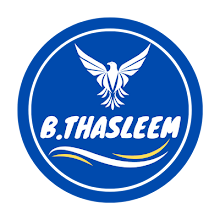Human blood is grouped into four types: A, B, AB, and O. Each letter refers to a kind of antigen, or protein, on the surface of red blood cells. For example, the surface of red blood cells in Type A blood has antigens known as A-antigens.
The Rh Factor
Each blood type is also grouped by its Rhesus factor, or Rh factor. Blood is either Rh positive (Rh+) or Rh negative (Rh-). About 85% of Americans have Rh+ blood.
Rhesus refers to another type of antigen, or protein, on the surface of red blood cells. The name Rhesus comes from Rhesus monkeys, in which the protein was discovered.
Blood Transfusions
Blood types become very important when a blood transfusion is necessary. In a blood transfusion, a patient must receive a blood type that is compatible with his or her own blood type—that is, the donated blood must be accepted by the patient's own blood. If the blood types are not compatible, red blood cells will clump together, making clots that can block blood vessels and cause death.
Type O– blood is considered the “universal donor” because it can be donated to people of any blood type. Type AB+ blood is considered the “universal recipient” because people with this type can receive any blood type.
| Blood type | Percent of Americans with this type | Who can receive this type |
|---|---|---|
| O+ | 37% | O+, A+, B+, AB+ |
| O– | 6 | All blood types |
| A+ | 34 | A+, AB+ |
| A– | 6 | A+, A–, AB+, AB– |
| B+ | 10 | B+, AB+ |
| B– | 2 | B+, B–, AB+, AB– |
| AB+ | 4 | AB+ |
| AB– | 1 | AB+, AB– |
Did You Know?
- Blood type is inherited, just like eye color.
- Certain blood types are more common in certain countries. In China, over 99% of the population has Rh+ blood.
- Different kinds of animals have different kinds of blood. Dogs have 4 blood types; cats have 11; cows have about 800.
- Some people think blood type tells about personality. Legend has it that Type A is calm and trustworthy; Type B is creative and excitable; Type AB is thoughtful and emotional; and Type O is a confident leader.
- In Japan, the idea of blood type as personality type is so popular that Japanese ask “What's your blood type?” about as often as Americans ask “What's your sign?”





0 comments:
Post a Comment